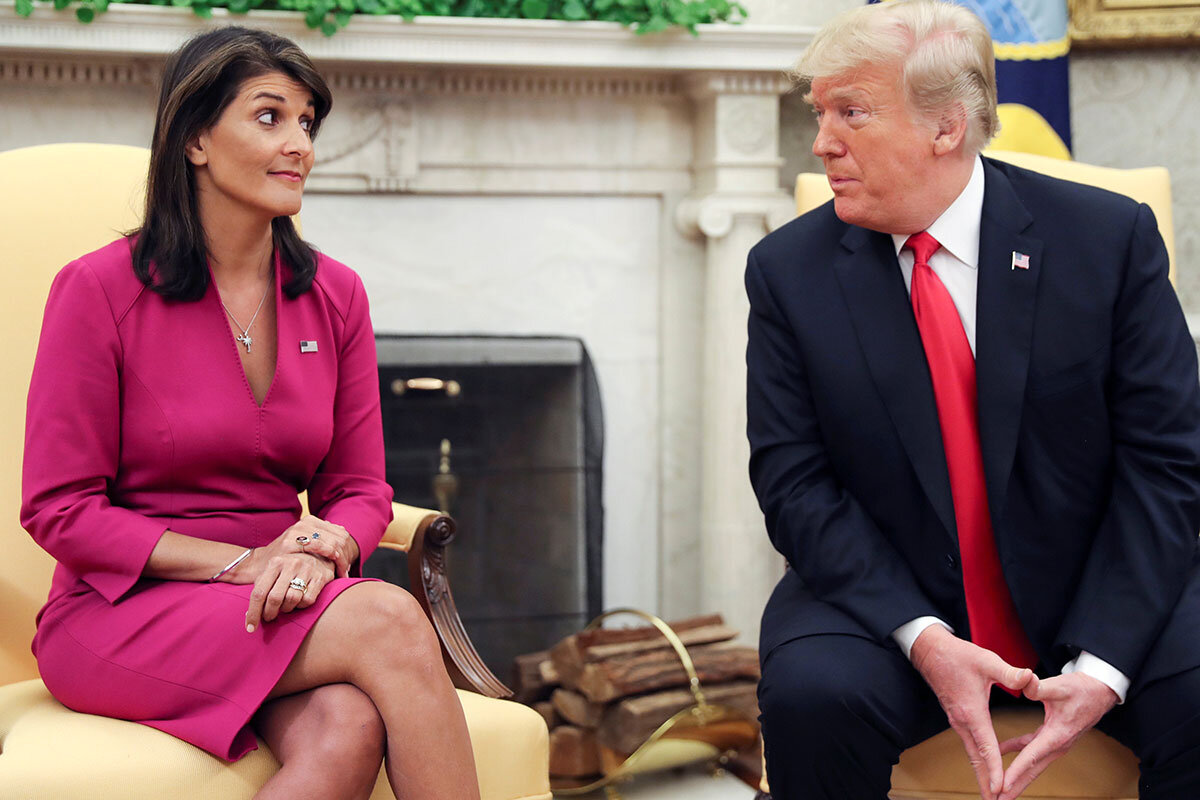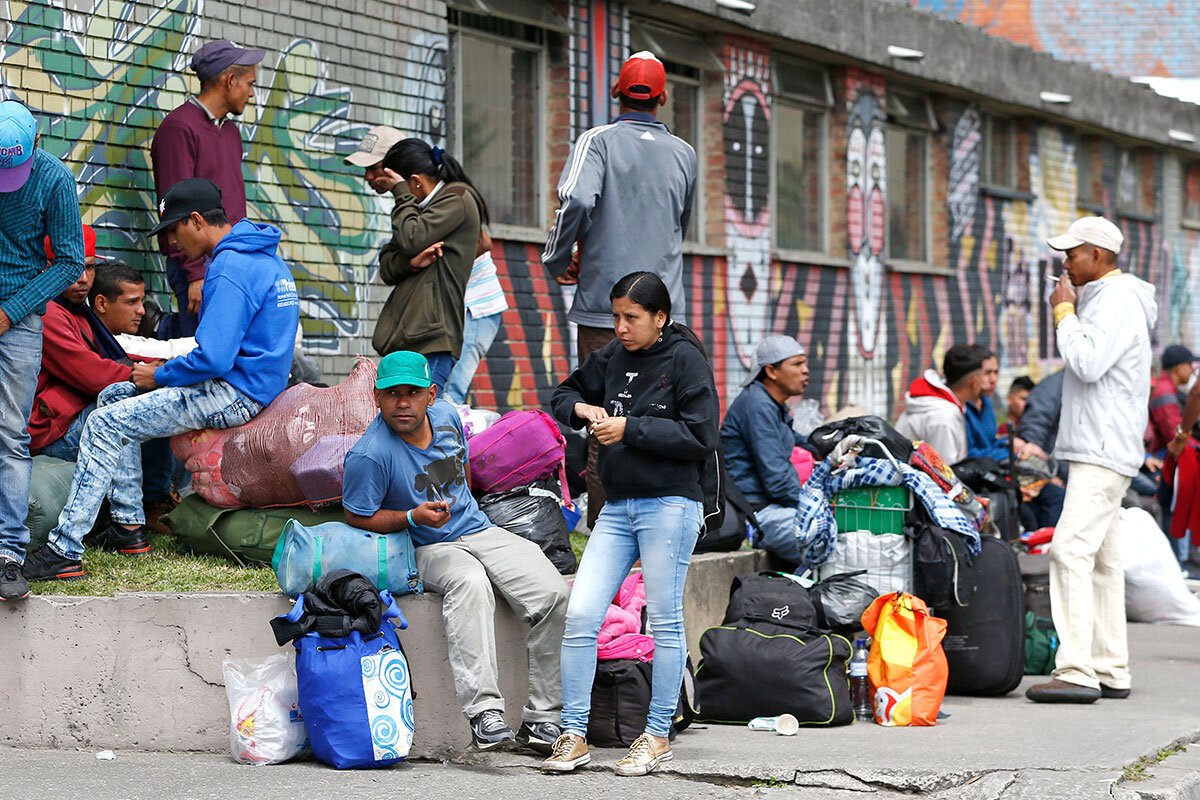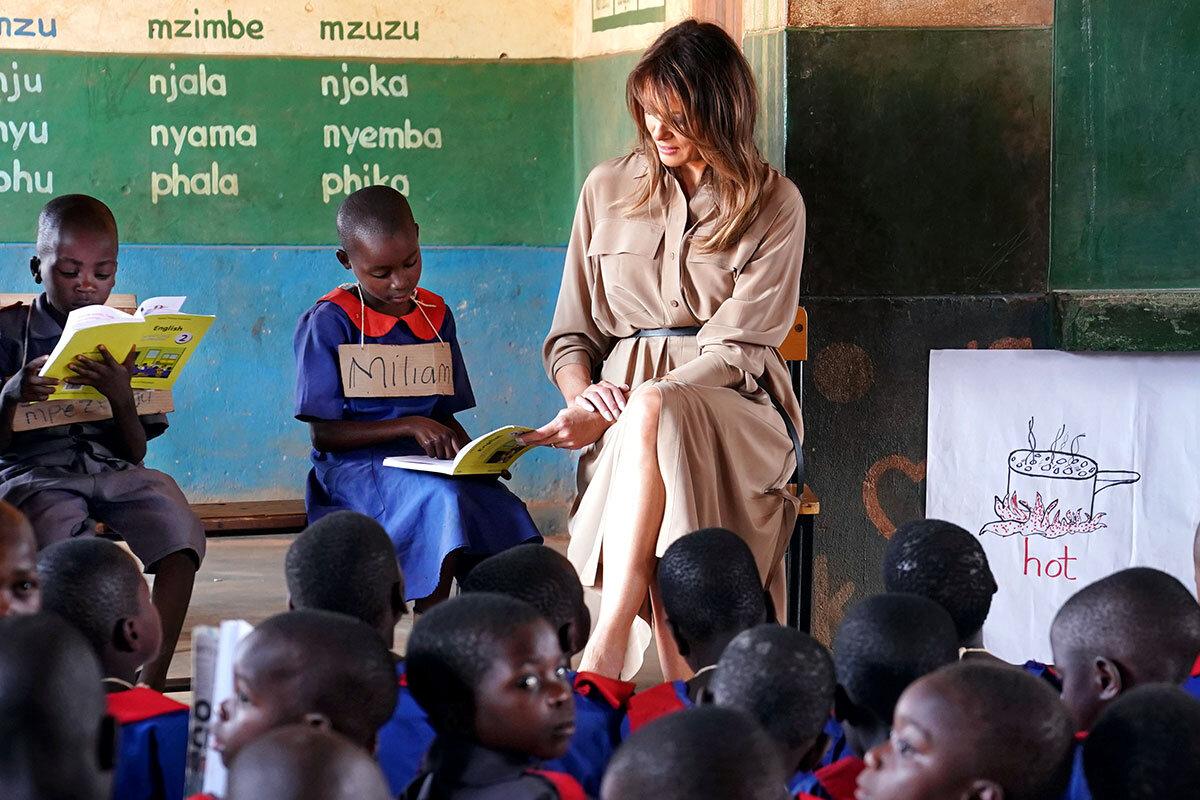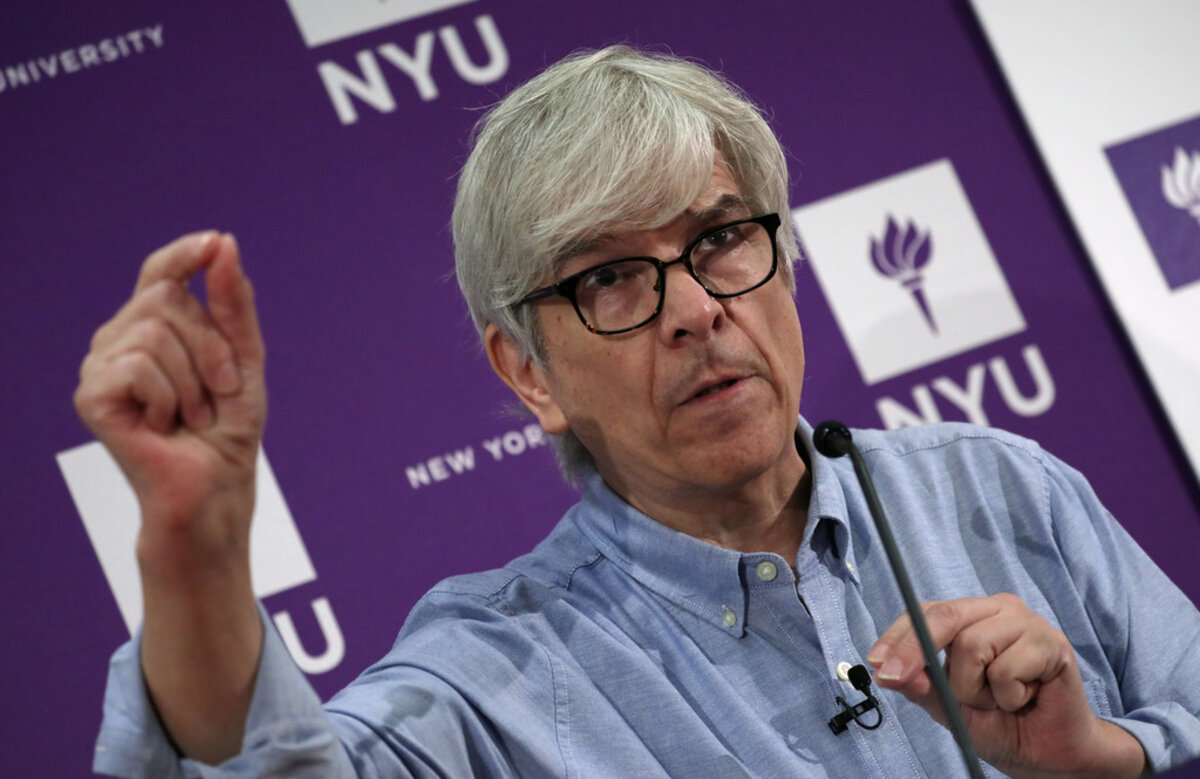Nikki Haley, US ambassador to the United Nations, represented both a politically conservative – and provocative – approach to geopolitics, which wasn’t always in sync with the president. Here’s our look at how she influenced US global policy.
Monitor Daily Podcast
- Follow us:
- Apple Podcasts
- Spotify
- RSS Feed
- Download
 David Clark Scott
David Clark Scott
A hurricane is spinning up in the Gulf of Mexico. Preparations at Florida’s Santa Rosa County Sheriff’s Office include the following:
• Time off canceled for all personnel. Check.
• Backup generator fueled up. Check.
• Trespass warning issued to Jim Cantore. Check.
That’s right, The Weather Channel meteorologist is so synonymous with hurricanes that this sheriff’s office is covering all its bases.
Mr. Cantore has made a career of leaning into buffeting winds, whipped by rain, and shouting about the conditions. He didn’t invent the storm stand-up, but arguably he’s taken it to new levels.
The Cantore trespass warning is a joke. But the storm isn’t.
Hurricane Michael is intensifying in the Gulf and is forecast to hit Florida’s Panhandle as a Category 3 storm Wednesday evening. Florida Gov. Rick Scott declared a state of emergency for 35 Florida counties and encouraged evacuations. Due to the pending storm, Tuesday’s voter registration deadline was extended by a day.
No word yet on where Cantore is headed.
But whatever storms may threaten, there’s wisdom in preparing like the Santa Rosa County Sheriff's Office – with a sense of humor.
Now to our five selected stories, including the quest for justice in Chicago, the corporate ethics of responding to climate change, and how our correspondent challenges stereotypes about Africa.










